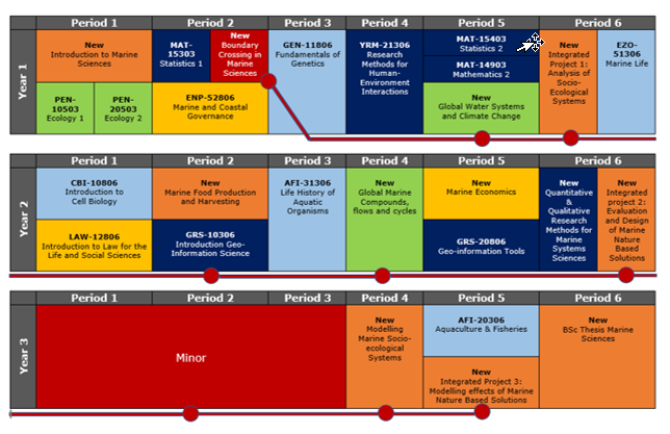
Testimonial
Boundary crossing ribbon course in the newly developed BSc Marine Sciences
Marine sciences problems are the core of the newly developed BSc Marine Sciences program, which inevitably requires a lot of boundary crossing across disciplines, cultures and societal partners. This program is interdisciplinary all the way through, by using and working on Marine Sciences problems such as the North Sea Agreement.
Becoming a boundary crosser is a key outcome of the program: the students are expected to feel empowered and inspired to stimulate cross boundary learning and working on Marine issues.
Jan Philipsen and Jetske ten Caat presented the set-up for the new Bachelor programme Marine Sciences. Alongside content-related courses, the program is developing a 3 credit boundary crossing course in the beginning of the first year, which is then followed up as a ribbon course all through the program (see the red dotes in Figure 1). In the red dotted courses, explicit attention is being paid to working on a cross boundary case that trigger students’ Boundary Crossing abilities, personal learning goals in this respect and reflection on how the process and product or innovation has gained from working across practices.
The ribbon course is currently developed in a Design lab with teachers from different programmes supported by Education Support Centre (ESC) and Education and Learning Sciences (ELS).
